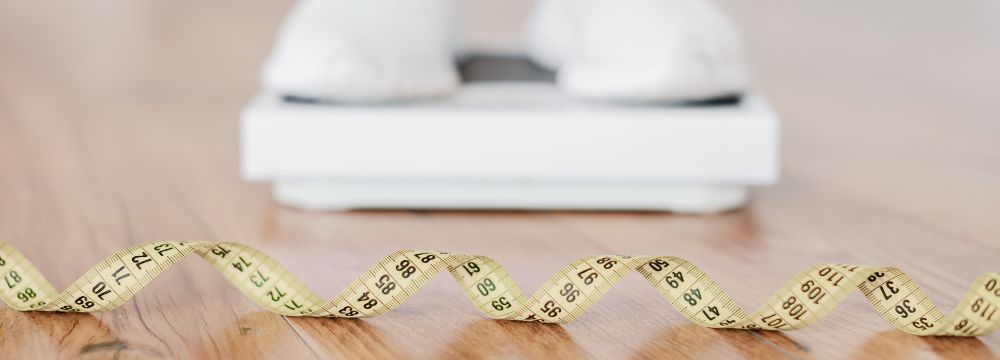
Many changes occur in your body after bariatric surgery; some are obvious, such as losing weight and your body composition changes. Some are psychological, like how you go about your daily life due to improved confidence and feeling better. Some are hormonal, with many patients feeling less hunger after a gastric sleeve, for example, or may experience a rebalancing in hormones that allow them to conceive. These changes are well documented in the literature – we understand them and can often predict them. However, one almost universal change is talked about far less, but it is also a big part of postoperative life. We’re not sure exactly why it happens, but most patients experience significant changes in their tastes after surgery. We know that transitioning from ultra-processed foods to more natural meals makes a difference. Many have experienced that when eating a fast-food meal after a week or two of “clean” eating. But why do some patients have an aversion to plain water after surgery? Why do some people love cilantro after hating it their whole lives? We don’t know why this happens exactly, but we know the mechanisms behind it.
Let’s Start With Dopamine
A 2018 study in the Journal of Obesity Surgery showed that changes in the dopamine pathway can significantly affect sensory responses, making the body less sensitive to taste. A 2001 study showed that obese individuals had fewer dopamine receptors in the striatum. Studies have also noted that even on a cellular level, obese mice had a lower response to sweet and bitter, for example. And dopamine is the pleasure hormone and neurotransmitter that our brains secrete to help us enjoy, amongst other things, what we eat. Less dopamine means less pleasure response, which requires more of a substance to get the same enjoyment. This is the mechanism that underpins addiction.
And How About Those Taste Buds?
There is a second reason why your taste buds will change significantly. And it revolves around the concentration of salt and sweetness you consume in processed foods. Even some of the most innocuous foods, let’s call them canned beans, which you would think would be relatively healthy, can have hundreds of milligrams of sodium and plenty of sugar.
Let’s start with sodium. Extremely high levels of sodium often found in processed foods result from our taste buds being desensitized to saltiness. This is a vicious cycle. If food manufacturers use less salt, we won’t find their food palatable, so they use more. But as they use more sodium to match our needs, our taste buds become even more desensitized. When does it end? Similarly, many patients who start on a diet will switch from sugary drinks to those with artificial sweeteners (think Coke vs Diet Coke). They are falsely lulled into a sense of security that their drink has few or no calories. However, the sweetness is often far greater than what they would derive from a sugar-sweetened drink. Although they might not be taking in calories, their brain is still becoming tolerant to the sweetness and may crave even more. With most sweeteners, it’s important to remember that they are not one-to-one replacements for sugar. Far less artificial sweetener is needed to get the same amount of sweetness.
What’s the Answer?
While we cannot predict what you will or won’t like after surgery, we know that things will change as you lose weight and rebalance your hormones and dopamine production. You will probably taste everything more intensely, especially sugar. For some, this makes sugar unpalatable. But for most of us, it means that we don’t need as much sugar as we did before to get the same enjoyment. Sugar is not the enemy. Our bodies require glucose to function. We just want to avoid the added sugar that comes with lots of processed foods. To that end, bariatric surgery is very good at helping us moderate the amount of sugar we eat. Beyond that, you must consume enough protein to make you feel full and to ensure that you aren’t losing too much lean muscle mass as you lose weight.
As with any new experience, especially something as life-changing as bariatric surgery, some exciting and strange changes will happen to your body and taste buds. We suggest you embrace these and always feel comfortable speaking to our practice, including our bariatrician Jenny or myself, to understand more about why this is happening and whether it’s normal. Fortunately, it is most often the worst food we start to dislike after bariatric surgery. Vegetables, whole fruits, lean meats, and legumes all begin to taste better because our taste buds are not blunted to them anymore. Even small amounts of dessert or slightly sugary drinks can be enjoyed because of their more intense taste.
And that brings us to a last and very crucial point. Yes, your tastes will change, and yes, you will not be able to eat the quantity of sugary or high-fat foods that you once did. But this is good because it is more than made up for by enjoying foods you may have never enjoyed before. Healthy foods are surprisingly delicious when you haven’t had highly processed foods for a while. Not only that, but many bariatric patients become excellent cooks because they use basic but exciting ingredients in ways they had never known. This is a time to experiment and get excited about food again. Best of luck!









